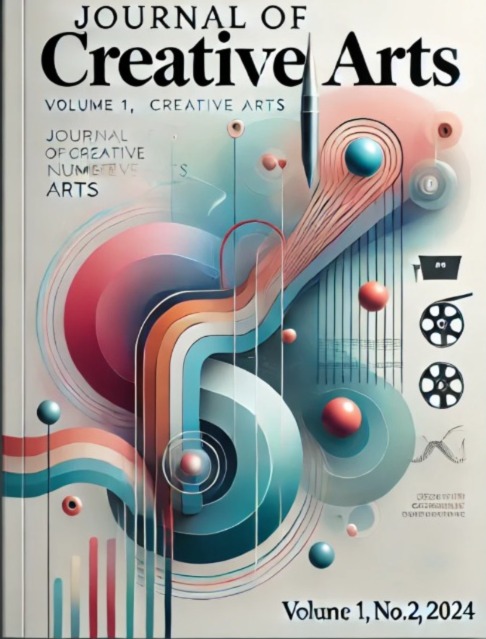A Comparative Study on the Violin Method Books for Beginners
DOI:
https://doi.org/10.24191/jca.v1i2.3221Keywords:
violin method, Music pedagogy, violin pedagogy, Violin for beginnersAbstract
A comparative study was conducted on three different books that are known as beginner technique books. The books are Shinichi Suzuki's Suzuki Violin School Volume 1 (1970), Auer's Maia Bang's Violin Method (1991), and C. Paul Herfurth's A Tune A Day (1991). The objectives of the study were 1) to identify the similarities and differences between each technique book, as well as 2) to the investigate the advantages and disadvantages of each technique book. Reviewing and addressing the objectives was accomplished through the utilisation of the qualitative content analysis, which is a comparison technique. The finding of this study has discovered that these three method books have a lot in common with one another in terms of core ideas, teaching patterns, procedures, and theories. In spite of this, their approaches are the most dissimilar. Despite this, these three method books are appealing to a wide range of students, depending on their talents and levels of aptitude, because each book employs a different instructional approach and has different learning objectives. The strategies that were selected are able to accommodate a variety of students according to their capabilities and talents. With regard to the efficacy of these three technique books, it is suggested that additional research be carried out.
References
Akdeniz, H. B. (2015). A comparison of the main features of Suzuki and traditional violin education. Journal of Literature and Art Studies, 5(2), 107-113.
Auer, L. (1919). Maia Bang Violin Method - Part 1. Carl Fischer Music Publisher; Revised edition
Bang,M. (2001). The Maia Bang Violin Method, Part 1. Wilhelm Hansen Musikforlag A/S.
Bruser, Madeline. The art of practicing: A guide to making music from the heart. 1st Edition. New York, 1997
Catterall, J. S, Chapleau, R, & Iwanaga, J. (1999). Involvement in the Arts and Success in the Basic Skills of Schooling. Arts Education Policy Review.
D, B. (1980, Macmillan, New York). Violin I, The instrument," in The New Grove Dictionary of Music and Musicians,. 19(819).
Falk, B. (2010). The Benefits of Music Education. Arts Education Policy Review. 111(3), 11- 18.
Herfurth, C.P. (1933). A Tune a Day for Violin – Book 1. Boston Music
Hudziak, J. J., Albaugh, M. D., Ducharme, S., Karama, S., Spottswood, M., Crehan, E., & Brain Development Cooperative Group. (2014). Cortical thickness maturation and duration of music training: Health-promoting activities shape brain development. Journal of the American Academy of Child & Adolescent Psychiatry, 53(11), 1153-1161
J.Smith. (2008). The Importance of Dynamics in Music Education. Journal of Music Education, 5(3).
Jorgensen, E. (2002). The Positive Psychological Effects of Music Listening. Musicae Scientiae. 6(1), 9-20.
Jorgensen, H. (2017). The Influence of Practice Strategies on the Development of Expert Performance in Violin Playing. Frontiers in Psychology, 8, 867.
Lorenzo, J. (2019, January 22). A Brief History of the Violin. National Geographic. Retrieved February 13, 2023, from https://www.nationalgeographic.com/history/history- magazine/article/invention-of-musical-string-instrument-violin
Mamedova, N. (2020). Memory and violin playing: how playing the violin affects memory?.
Robin, K. (2006). An Overview of Violin Pedagogy with an Emphasis on Amateur Violinists.
Sclesinger, K. (1914). (The Precursors of the Violin Family: Records, Researches & Studies.
Society for Neuroscience. (2013, November 12). Musical training shapes brain anatomy affects function. ScienceDaily. Retrieved March 26, 2023 from www.sciencedaily.com/releases/2013/11/131112163216.htm
Suzuki, S. (1970). Suzuki Violin School Vol. 1. Summy-Birchard.
Suzuki, S. (1988). Nurtured by Love: The Classic Approach to Talent Education. Summy- Birchard Inc.
Downloads
Published
How to Cite
Issue
Section
License
Copyright (c) 2024 Noor Farisah Noordin, Juwairiyah Zakaria, Ahmad Munir Mahzair

This work is licensed under a Creative Commons Attribution-NonCommercial 4.0 International License.




